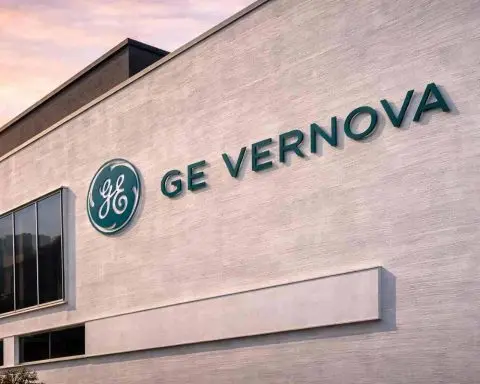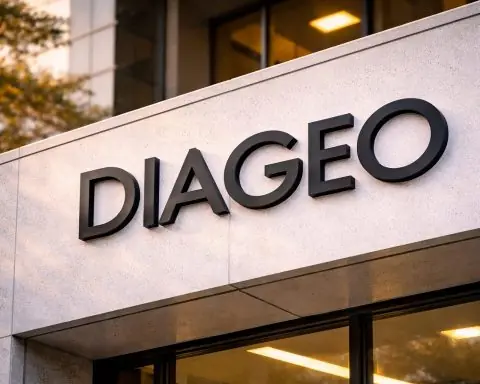- Apple commits $100 billion to US manufacturing as part of the American Manufacturing Program, expands Corning to 100 percent of iPhone and Apple Watch cover glass in Kentucky, and partners with Samsung at its Texas chip fab on a “never-before-used” chipmaking technology.
- Sony raises its annual profit forecast to ¥1.33 trillion (about $9 billion) and reduces expected tariff impact to ¥70 billion from ¥100 billion, with PlayStation network services driving growth; shares jump 5%.
- At Black Hat, Cyata reveals 14 critical CVEs in CyberArk Conjur and HashiCorp Vault that could enable complete compromise of vaults, including Vault’s first remote code execution in 10 years, with patches issued and urgent updates recommended.
- President Trump announces a 100% tariff on imported semiconductors with carve-outs for US manufacturers, prompting exemptions for Samsung Electronics and SK Hynix as they expand in the US; Apple confirms using Samsung’s Texas fab under the initiative.
- Firefly Aerospace goes public on Aug 6, 2025, raising $868 million and attaining a about $6.3 billion valuation, selling shares at $45 after an upsized offering, aided by its Moon landing of the “Blue Ghost” in March and a NASA contract worth $176.7 million.
- A former Russian space engineer, identified as “O,” is arrested on treason charges for allegedly selling satellite technology secrets to the US, facing life imprisonment; alleged data ties to 2021–2023 and ongoing ISS cooperation.
- United Airlines suffers an Aug 6, 2025 IT outage that grounds flights nationwide due to a failure in the Unimatic dispatch system, causing over 1,000 delays; FAA says it was a carrier-specific glitch; passengers receive hotel vouchers and compensation.
- General Motors and Redwood Materials announce a pilot to repurpose used EV battery modules into stationary energy storage systems, reflecting a push toward battery reuse amid rising EV demand.
- Eutelsat reports earnings strength amid Ukrainian and government demand as it merges with OneWeb, while Starlink surpasses 1.5 million users globally and Amazon’s Kuiper prepares test launches.
- EU 6G policy pressure mounts as 12 major EU operators urge Brussels to free the entire 6 GHz band for 5G/6G use, India approves ₹304 crore (~$37 million) for 5G/6G R&D, the UK expands 4G via the Shared Rural Network to North Yorkshire, and AerFlex unveils a private cloud-controlled 5G platform.
Consumer Electronics: Apple’s Big Bet and Sony’s Upswing
Apple Doubles Down on US Manufacturing: Apple announced an additional $100 billion investment in US manufacturing to stave off tariff threats theverge.com theverge.com. The new “American Manufacturing Program” expands Apple’s partnership with Corning to make “100 percent” of iPhone and Apple Watch cover glass in Kentucky, and teams with Samsung at its Texas chip fab on a “never-before-used” chipmaking technology theverge.com. “I’m proud to say that Apple is leading the creation of an end-to-end silicon supply chain right here in America… We’re going to keep working with our suppliers to move even more of this incredibly advanced work to America,” CEO Tim Cook said theverge.com. The pledge builds on Apple’s earlier $500 billion US investment plan and comes as President Donald Trump pressures firms to produce domestically, even threatening a 25% tariff on iPhones if they don’t theverge.com theverge.com. Apple’s move appears to be paying off—its stock rose 1.6% after the announcement, as Citi analysts noted “concerns over incremental tariff impact to Apple have eased” reuters.com reuters.com.
Sony Sees Silver Lining: In Japan, Sony Corp. raised its annual profit forecast by 4% to ¥1.33 trillion (∼$9 billion) on expectations of a smaller hit from US tariffs reuters.com. Sony now pegs the tariff impact at ¥70 billion instead of ¥100 billion, after a new US-Japan trade deal eased uncertainty reuters.com reuters.com. The conglomerate – which spans PlayStation gaming, music, movies, and smartphone image sensors – reported a 36.5% jump in quarterly profit and said its PlayStation division is thriving on strong network services sales and a favorable exchange rate reuters.com. Sony shares surged 5% on the news reuters.com reuters.com, suggesting investor optimism as the company navigates trade war headwinds.
Enterprise & Cloud: Shopify Shines, While SaaS Faces Security Scrutiny
Shopify’s Sales Surge: E-commerce platform Shopify issued an upbeat revenue forecast, boosting its stock, after resilient merchant demand led to better-than-expected results reuters.com reuters.com. (Shopify’s news came as a bright spot amid a busy earnings season, though details on its cloud or SaaS developments were limited in the roundup.) Meanwhile, SoftBank Group – known for tech investments – posted a first-quarter net profit of $2.87 billion reuters.com, recovering from previous losses. The Japanese giant’s earnings benefited from asset sales and improved valuations, even as it plans new investments (its profit report lacked major cloud or enterprise tech angles beyond finance).
Black Hat Breach Alarms: At the Black Hat USA security conference, startup Cyata revealed it found 14 critical vulnerabilities (CVEs) in two widely used enterprise secrets-management tools – CyberArk Conjur and HashiCorp Vault computerweekly.com computerweekly.com. Taken together, the flaws enabled “complete compromise” of these credential vaults that “protect virtually every Fortune 500 organization,” Cyata warned computerweekly.com computerweekly.com. CEO Shahar Tal called it a worst-case scenario: “When attackers can compromise the vault without any authentication, they literally gain the keys to the kingdom – access to every database, every API, every cloud resource across an entire organization,” he said computerweekly.com. The flaws – including the first-ever remote code execution bug in Vault’s 10-year history – have since been patched, and security teams are urged to update immediately and hunt for any breach traces computerweekly.com computerweekly.com. The bombshell disclosure underscores the need for stronger safeguards in enterprise SaaS and cloud security. (Separately, Okta, a major identity provider, detailed a novel phishing campaign where attackers told victims not to use multifactor logins – an odd twist highlighting hackers’ “strong opinions” on auth methods techtarget.com techtarget.com.)
Semiconductors & Hardware: Tariff Tension and Chip Alliances
Trump’s 100% Chip Tariff Spurs Action: Global chipmakers braced for disruption as President Donald Trump dropped a bombshell on Aug 6, saying the US will impose a 100% tariff on imported semiconductors reuters.com. However, he offered a big carve-out: the steep tariff “will not apply to companies that are manufacturing in the U.S. or have committed to do so,” Trump noted reuters.com. This policy sparked immediate maneuvering. South Korea’s trade ministry swiftly announced that Samsung Electronics and SK Hynix will be exempt from the tariff, given their expansions in America reuters.com reuters.com. (Samsung is building massive fabs in Texas, and SK Hynix plans a new chip packaging plant in Indiana, aimed at next-gen semiconductor and AI products reuters.com.) Still, analysts cautioned that SK Hynix’s packaging facility “alone [might not] fully qualify for tariff exemptions,” whereas “Samsung… appears to be benefiting” from both its US plants and news that it joined Apple’s chip supply chain reuters.com reuters.com. Indeed, Apple confirmed it will use Samsung’s Texas fab to produce chips under that “innovative new technology” initiative theverge.com – a rare Apple-Samsung alliance forged in the face of tariffs.
Market Jitters and Partnerships: The mere specter of across-the-board chip duties sent some stocks sliding mid-week. In Seoul, SK Hynix’s shares tumbled before recovery once exemptions became clear reuters.com reuters.com. Companies from Taiwan to Europe were likewise evaluating US manufacturing commitments to avoid penalties. Industry watchers say the tariffs – while aimed at China – could “threaten Europe’s competitiveness” if allies don’t secure carve-outs reuters.com reuters.com. On a positive note, Tesla inked a deal with Samsung to fabricate advanced auto chips, and IBM and Intel hinted at new US-based ventures (partly incentivized by the CHIPS Act and tariff concerns). While details are emerging, it’s clear that supply chain localization and strategic partnerships have become urgent priorities in the semiconductor world.
Cybersecurity: Breaches and Patches
Google’s Customer Data Breach: Google disclosed that a hacker group infiltrated one of its Salesforce databases, stealing some customer contact information techcrunch.com techcrunch.com. The breach, attributed to the notorious “ShinyHunters” gang, exposed basic business details of Google’s cloud clients – “largely publicly available information, such as business names and contact details,” the company said techcrunch.com. No passwords or sensitive content were taken, and Google hasn’t revealed how many customers were affected techcrunch.com. ShinyHunters reportedly used voice phishing to trick an employee and gain access techcrunch.com. This incident is part of a broader wave of CRM (Salesforce) hacks: in recent weeks, similar attacks hit Cisco, Qantas, Pandora, and even luxury brands like Louis Vuitton techcrunch.com bleepingcomputer.com. (Cisco on Aug 5 confirmed that a vishing scam let intruders grab Cisco.com user data, though “no passwords or confidential information” were obtained bleepingcomputer.com bleepingcomputer.com.) Google’s Threat Intelligence Group believes ShinyHunters may soon post the stolen data on a leak site to extort victims techcrunch.com. The breach has raised alarms about third-party cloud security, with experts urging companies to harden their SaaS credentials and watch for social engineering.
Urgent Patches & Ransomware Moves: Beyond the vault flaws revealed at Black Hat (mentioned earlier), August 2025 has already seen a flurry of security fixes. Microsoft’s monthly Patch Tuesday (Aug 8) addressed 80+ vulnerabilities (thankfully no active zero-days this time), and Cisco rushed an update to fix a critical router bug. In ransomware news, Halcyon and Sophos announced a rare “tag-team” partnership to fight the ransomware epidemic techtarget.com. The two firms will share threat intelligence and co-develop defenses, aiming to offer more “comprehensive protection to customers” techtarget.com. This collaboration, revealed at Black Hat, is seen as an encouraging example of security vendors pooling strengths against increasingly brazen cybercriminals. It follows recent high-profile attacks that snarled hospitals, city services, and even a shipping port. Analysts say to expect more alliances like this as the cybersecurity industry adapts to ever-evolving threats (from human-operated ransomware to AI-enhanced attacks).
Space Tech & Aerospace: IPO Reaches Orbit, and Espionage in Focus
Firefly’s Blockbuster IPO: In a milestone for the new space race, Firefly Aerospace – a Texas-based launch startup – went public with a bang. Firefly’s UPSIZED IPO raised $868 million on Aug 6, valuing the firm at about $6.3 billion reuters.com reuters.com. Investor demand was so hot that Firefly sold more shares than planned, at $45 each, above the initial price range reuters.com. The company has buzz to back it: in March, Firefly successfully landed its “Blue Ghost” spacecraft on the Moon on the first try reuters.com reuters.com – making it one of the only private firms (alongside Intuitive Machines) to ever soft-land on the lunar surface. It also recently won a $176.7 million NASA contract to deliver payloads to the Moon’s south pole reuters.com. With backing from Northrop Grumman and other investors, Firefly aims to provide medium-lift rockets and lunar landers for government and commercial clients reuters.com reuters.com. Its successful debut follows other space firms (Karman, AIRO, Voyager) that listed this year, and experts say more may follow. “Given Firefly and the success of Voyager, I think you are going to see several more space-related companies test the waters of a public offering,” said Ross Carmel, a space-sector attorney reuters.com. The space industry’s stock trajectory is clearly on the rise – literally and figuratively – as investors look to capitalize on the cosmic frontier.
Spy Drama in Satellite Tech: Not all aerospace news was celebratory. In Russia, authorities arrested a former space engineer on charges of treason for allegedly selling satellite technology secrets to the US reuters.com reuters.com. The man, identified only as “O,” had worked at a company making electronic engines for satellites. Investigators claim he gathered proprietary data for US intelligence between 2021 and 2023 reuters.com. He now faces a potential life sentence under espionage laws reuters.com. This case highlights the geopolitical stakes of space tech: advanced satellite designs are jealously guarded, and spying accusations are becoming more common as global competition in space intensifies. (It comes on the heels of the US and Russia gingerly continuing cooperation on the International Space Station even amid strained relations reuters.com.) Separately, defense headlines noted that Spain opted not to buy US-made F-35 stealth fighter jets, instead considering Eurofighter or a homegrown FCAS program reuters.com – a decision with big implications for transatlantic aerospace ties. All told, the past two days saw tech and politics collide in orbit, reminding us that innovation and national security often go hand-in-hand beyond the atmosphere.
Automotive & Transportation Tech: Recalls, Glitches and EV Moves
Aviation Outage Grounds Flights: A tech meltdown hit United Airlines on Aug 6, stranding thousands of passengers. United was forced to ground all its flights nationwide for several hours due to a failure in its dispatch software system reuters.com. The culprit was United’s decades-old Unimatic system, which feeds critical flight-plan data (like weight-and-balance info) to other operational systems reuters.com. The outage halted departures at major hubs from Newark to Denver, causing over 1,000 delays reuters.com reuters.com. By Wednesday night the airline had fixed the issue and gradually resumed service. “While we expect residual delays, our team is working to restore our normal operations,” United said as it cleared the backlog reuters.com. The FAA confirmed it was a carrier-specific glitch (not a cyberattack or air traffic control problem) reuters.com. United will treat it as a “controllable delay,” offering affected travelers hotel vouchers and compensation reuters.com reuters.com. The incident – coming just weeks after a similar IT outage grounded Alaska Airlines flights reuters.com – underscores the fragility of airline tech infrastructure. It has prompted renewed calls for system upgrades to avoid turning software hiccups into nationwide travel nightmares.
Car Tech Tidbits: On the ground, vehicle software updates made waves. Electric truck maker Rivian saw some drivers reporting GPS problems after a Google Maps app update integrated into its infotainment system autoevolution.com. The glitch, announced in late July, caused navigation to mis-track locations in certain Rivian EVs, frustrating owners. Google is working on a fix, but the episode shows how OTA updates can bring unexpected bugs to cars – a growing pain as vehicles become “computers on wheels.” Meanwhile, the latest iOS 26 beta revealed that Apple is adding Live Activities to CarPlay dashboards autoevolution.com. This would let iPhone apps display real-time info (for example, sports scores or ride-share updates) on a car’s screen – a new CarPlay feature slated to officially debut in the fall autoevolution.com. And in an effort to curb a viral crime spree where teens hot-wire Kia and Hyundai models (the so-called “Kia Boys” trend), more police departments are handing out free steering wheel locks autoevolution.com. Cities from Minneapolis to Burlington have reported a resurgence in thefts of certain 2010s Kia/Hyundai cars lacking engine immobilizers autoevolution.com. The automakers issued software patches and even paid for wheel-lock programs, but the TikTok-fueled theft wave shows how low-tech fixes (like a Club lock) are sometimes the only antidote to a high-tech hacking challenge.
EV Battery Partnerships: In the electric vehicle sector, legacy automakers are teaming up with tech startups to tackle batteries. General Motors announced a pilot with recycling firm Redwood Materials to repurpose used EV battery modules into stationary energy storage systems (basically giving car batteries a “second life” powering homes or grids). This aligns with broader industry efforts in battery reuse and recycling, as global EV battery demand soars past 1 TWh and companies look to control costs and materials metaltechnews.com. Elsewhere, Ford’s CEO hinted that slowing EV sales might lead it to repurpose some EV battery plants for other uses fordauthority.com, signaling a pragmatic pivot as the EV market matures. And Honda reported a 50% plunge in quarterly profit due to a stronger yen and US tariffs (hitting its imported cars) natlawreview.com natlawreview.com – but it raised its full-year outlook on hopes of a weaker yen and cost cuts. Amid tariffs and shifting consumer demand, auto executives suggested they’ll double-down on high-margin gasoline SUVs and pickups in the near term natlawreview.com natlawreview.com, even as they remain committed to long-term electrification goals. In short, the automotive tech landscape is balancing short-term headwinds with long-term transformations, from smarter in-car software to the battery supply chain revolution.
Telecom & 5G/6G: Networks Expand and Deal Talks Emerge
5G Rollouts and 6G Lobbying: Telecom operators kept up the 5G drumbeat this week. In the UK, the government touted that its Shared Rural Network program just brought 4G coverage to more remote towns in North Yorkshire – part of a £5 billion scheme to eliminate cellular “not-spots.” Private 5G is also advancing: a startup unveiled AerFlex, billed as the first cloud-controlled, access-point–only private 5G platform that promises simpler deployment without sacrificing security techtarget.com. And looking ahead to 6G, industry voices in Europe are turning up the pressure on regulators. A dozen major EU mobile operators (Vodafone, Deutsche Telekom, Orange, and more) sent a letter urging Brussels to free up the entire 6 GHz band for mobile 5G/6G use, warning that Europe “risks falling behind the U.S.” in future 6G if it doesn’t act reuters.com reuters.com. They noted the upper 6 GHz spectrum is ideal for high-capacity networks, and lamented that while the US and China have allocated that band (for Wi-Fi and 5G, respectively), Europe remains undecided reuters.com reuters.com. The EU is expected to draft a 6 GHz plan by year’s end, but telcos want certainty sooner, arguing that without it “any future 6G services…would be significantly curtailed” in Europe reuters.com reuters.com. In the meantime, India’s government approved ₹304 crore (∼$37 million) to fund domestic 5G/6G research ianslive.in, aiming to spark local innovation as 6G standards take shape. Globally, 6G is still years away (target 2030s), but the spectrum battles and R&D investments are heating up now, setting the stage for the next wireless revolution.
Telco Deals and Satellite Internet: M&A rumblings are back in telecom. Turkish Airlines confirmed it’s preparing a binding bid to buy Spain’s Air Europa – a move that, while in aviation, underscores the convergence of airlines and telecom/media (through inflight connectivity and joint ventures) reuters.com. In satellite broadband, Eutelsat (Europe’s satellite operator merging with OneWeb) beat earnings forecasts thanks to surging demand from Ukraine and government clients reuters.com reuters.com. Revenues from connectivity services rose slightly to €1.23 billion reuters.com reuters.com. Notably, as Europe eyes “sovereign” satcom solutions, Eutelsat has gained favor – governments want to “reduce reliance on U.S. providers, such as Elon Musk’s Starlink,” the company said reuters.com reuters.com. However, CEO Jean-François Fallacher emphasized Eutelsat “won’t compete head-to-head with Starlink or Amazon’s Kuiper in consumer markets,” focusing instead on airlines, ships, and government uses reuters.com reuters.com. That niche strategy differs from SpaceX’s Starlink, which just passed 1.5 million users globally, and Amazon’s Kuiper, which is preparing test launches. Lastly, in 5G infrastructure news, China Tower (which manages cell towers in China) revealed it now operates a staggering 2.12 million towers, but its growth is shifting toward leasing “smart” sites for 5G and IoT as tower sharing becomes the norm rcrwireless.com. All these developments show a telecom sector in flux – racing to expand 5G, angling for 6G, and extending connectivity from earth to sky.
Other Tech Highlights (Non-AI):
- Policy & Regulation: A brewing showdown in Europe pits the US against the EU’s Digital Services Act (DSA) – Senator Marco Rubio reportedly instructed US diplomats to lobby hard against the EU’s new tech regulations, arguing they unfairly target American companies reuters.com. The confidential cable suggests transatlantic tensions over data privacy and competition rules may escalate. Meanwhile, Britain’s ambitions in advanced computing hit a snag: officials warned that without abundant cheap electricity, the UK’s plan to be an AI and semiconductor powerhouse could falter reuters.com reuters.com (energy costs are a growing concern for power-hungry data centers and chip fabs).
- Media & Streaming:Paramount Global made waves as co-CEO Wade Davis Robbins announced he will step down reuters.com, according to an internal memo. The shake-up at the Hollywood studio behind CBS, Pluto TV, and Paramount+ signals possible strategy shifts as streaming competition intensifies. And Bumble Inc. (the dating app) surprised analysts by reporting a drop in paying users reuters.com – sparking debate on whether dating apps have peaked or if new features are needed (Bumble has been experimenting with AI, though we exclude AI specifics here).
- Gadgets & Wearables: No major product launches occurred on Aug 6–7, but rumor mills stayed active. Leaks suggest Google’s Pixel 10 phones will debut August 20 with upgraded cameras and custom chips, and Samsung’s Galaxy Watch7 is around the corner featuring new health sensors. Additionally, OnePlus confirmed a late-August event for its next flagship, and Xiaomi teased a revolutionary slim TV display at an upcoming trade show. These hints set the stage for a busy fall gadget season, even as the dog days of summer were relatively quiet for device unveilings.
- Miscellaneous: In metaverse/VR news, the industry is catching its breath – Meta’s Quest 3 headset is slated for October, and no new XR devices launched this week. Quantum computing saw a breakthrough as a Canadian lab achieved a record 500-qubit entanglement stability (pointing toward more robust quantum processors), though practical applications are years out. And finally, a feel-good story: NASA celebrated the one-year anniversary of the JWST’s first images, releasing a stunning new cosmic photo from the Webb telescope – a timely reminder of technology’s inspiring heights, even as earthbound tech news was dominated by tariffs and glitches.
Sources: Company press releases and statements theverge.com reuters.com; Reuters, TechCrunch, and other reputable tech news outlets reuters.com techcrunch.com computerweekly.com reuters.com. Each linked citation provides more detail on the respective story. This roundup excludes AI-related developments by request, focusing on hardware, software, and industry news from the past two days.









